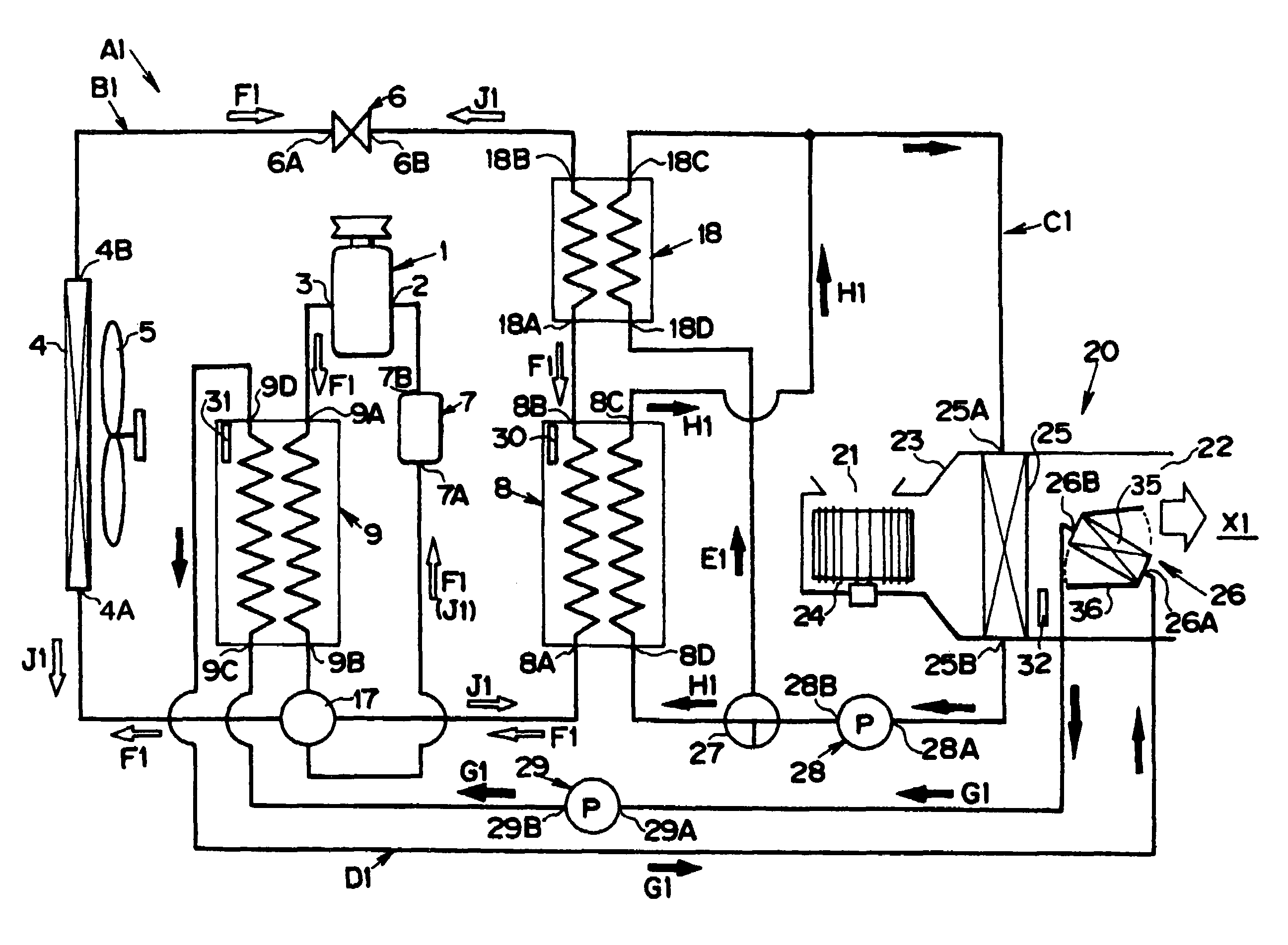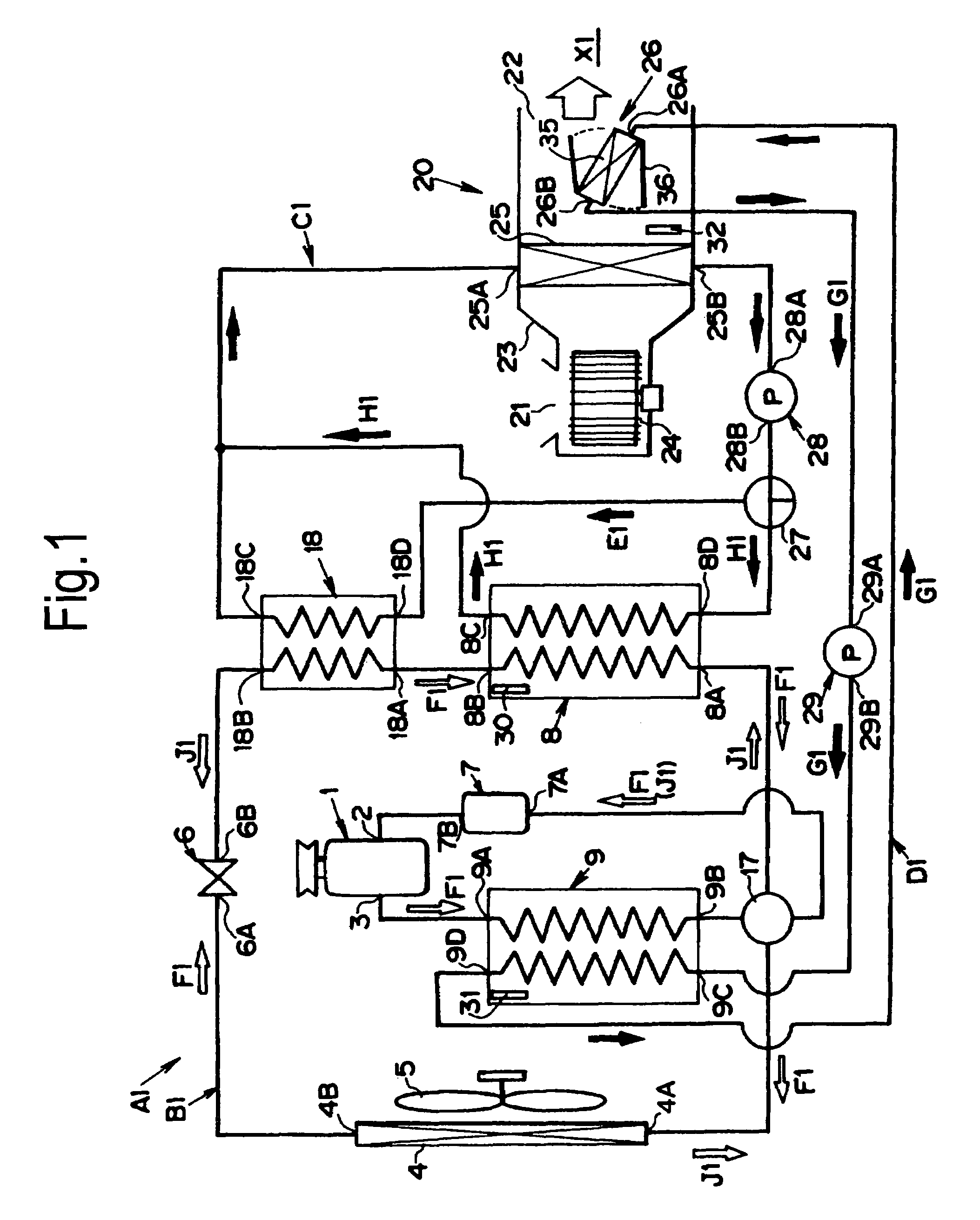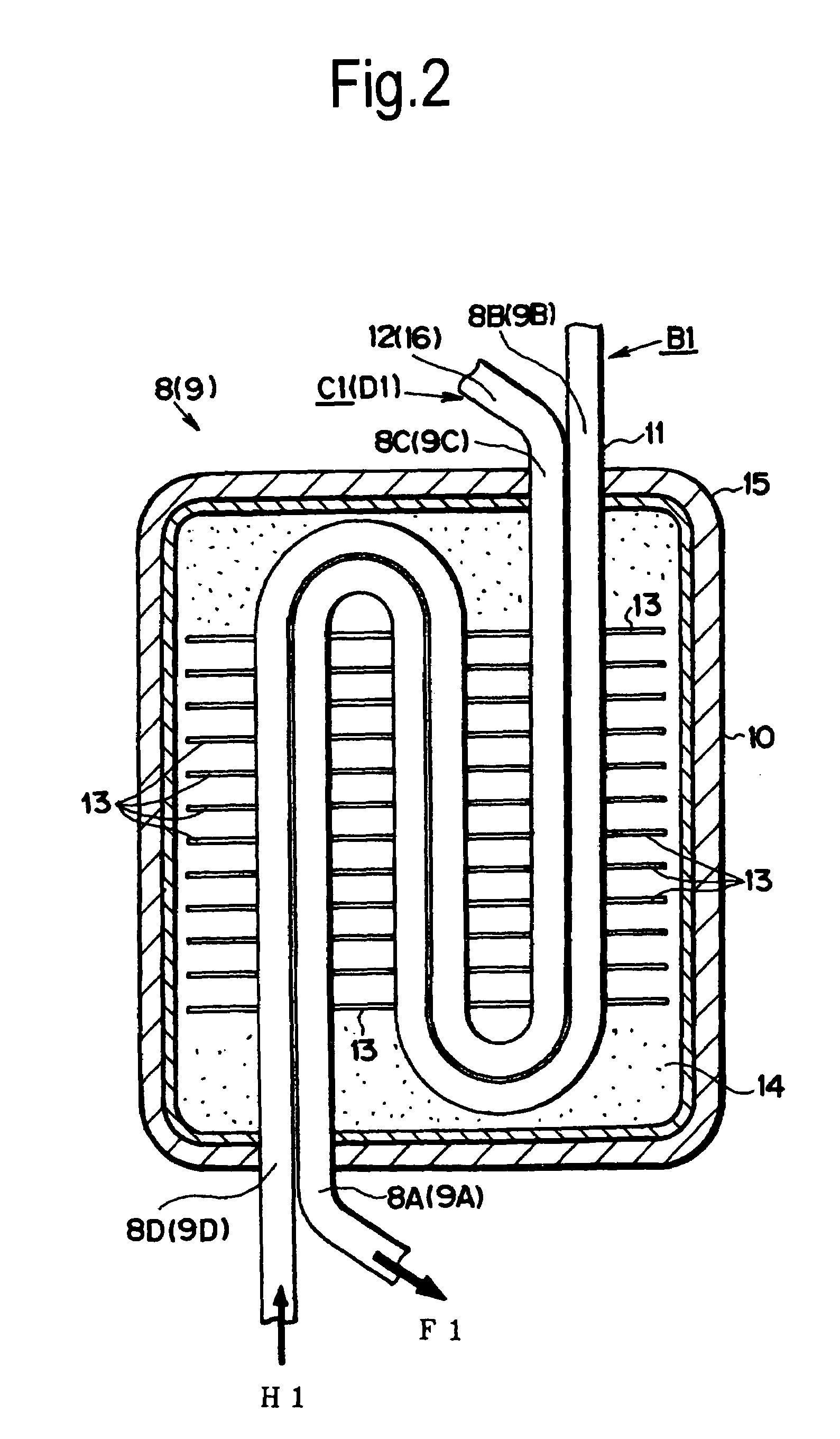Air conditioning apparatus
a technology of air conditioning apparatus and heating medium, which is applied in the direction of refrigeration components, refrigeration machines, process and machine control, etc., can solve the problem of not having the necessary air conditioning function, and achieve the effect of improving heat transfer efficiency between heating mediums and effectively storing hea
- Summary
- Abstract
- Description
- Claims
- Application Information
AI Technical Summary
Benefits of technology
Problems solved by technology
Method used
Image
Examples
Embodiment Construction
[0041]This invention will be described with reference to the accompanying drawings. FIG. 1 is a conceptional diagram showing a construction of an air conditioning system A1 for a vehicle. The air conditioning system A1 has a first circuit B1, a second circuit C1 and a third circuit D1. Each circulation circuit is, specifically, a flow passage for a fluid having a piping. A refrigerant (e.g., chlorofluorocarbon or refrigerant gas containing no chlorine) flows through the first circuit B1, whereas a brine (e.g., water or saltwater) flows through the second circuit C1 and the third circuit D1.
[0042]A construction of the first circuit B1 will be described first. A compressor 1 is arranged in the first circuit B1, which has a suction port 2 and a discharging port 3. The compressor 1 is driven by an (later-described) engine or an (later-described) electric motor. On the other hand, an outdoor heat exchanger 4 is arranged in the first circuit B1. This outdoor heat exchanger 4 is exemplifie...
PUM
 Login to View More
Login to View More Abstract
Description
Claims
Application Information
 Login to View More
Login to View More - R&D
- Intellectual Property
- Life Sciences
- Materials
- Tech Scout
- Unparalleled Data Quality
- Higher Quality Content
- 60% Fewer Hallucinations
Browse by: Latest US Patents, China's latest patents, Technical Efficacy Thesaurus, Application Domain, Technology Topic, Popular Technical Reports.
© 2025 PatSnap. All rights reserved.Legal|Privacy policy|Modern Slavery Act Transparency Statement|Sitemap|About US| Contact US: help@patsnap.com



